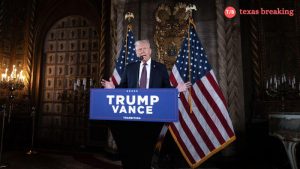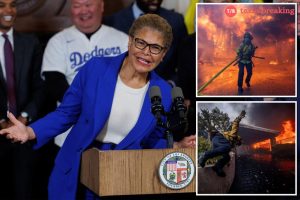As we mark the four-year anniversary of the January 6th, 2021 attack on the U.S. Capitol, it’s a moment for reflection on the events that shook our nation and the ongoing consequences that continue to shape American politics today. This event, when a mob of supporters of then-President Donald Trump stormed the Capitol, was fueled by misinformation about the 2020 election results. The aftermath has prompted numerous investigations and widespread debate about the state of democracy in the United States.
The Attack and Its Immediate Consequences
- Nearly 1,600 individuals have faced prosecution due to their involvement in the January 6th attack.
- The assault on the Capitol caused millions of dollars in damages and injured over 140 police officers who were trying to maintain order.
- During the chaos, members of Congress were forced to evacuate the Capitol as they were in the process of certifying the electoral votes for the 2020 presidential election.
This unprecedented event led to one of the largest investigations in U.S. history conducted by the Department of Justice, creating a ripple effect that reached into all 50 states with countless arrests being made.
Public Opinion and Political Ramifications
In the years following the attack, opinions within the Republican Party regarding the events of January 6th have notably shifted. A recent CBS News/YouGov poll indicates that Republican disapproval of the attack has decreased greatly, with only 30% expressing strong discontent now compared to 51% back in January 2021. However, a majority still support the notion of former President Trump granting pardons to those involved, contrasting sharply with broader public sentiment, where most Americans oppose such actions.
A Divided Nation: Ongoing Discourse
The attack not only disrupted a critical democratic process but also entrenched divisions within American society. Discussions among experts emphasize that the legacy of January 6th continues to illuminate a significant partisan divide, affecting how various groups relate to issues of trust in elections and governance.
Impact of the January 6th Attack
- At least seven people died in connection with the events that transpired that day, highlighting the tragic human cost of violence.
- Despite four years passing, many argue that the events of January 6th still resonate strongly within American politics, influencing voters’ perspectives heading into future elections.
- Discussions among journalists and political analysts reveal ongoing concerns about the future of political discourse and the integrity of democratic processes.
As we reflect on this troubling chapter of American history, questions remain about the path forward and whether the lessons learned will guide the nation into a more unified future.
Weather Impacting Commemorative Activities
The occasion is also marked by winter weather, with a storm affecting the D.C., Maryland, and Virginia areas. Schools are closing or delaying openings as a result of the forecasts predicting significant snowfall. The storm, which is expected to drop between five to ten inches, may impact events remembering the January 6th attack and the discussions around it.
Continuing the Conversation
- It’s important for communities to engage in discussions about the implications of January 6th and what it means for democracy in America.
- Citizens can learn more about local events honoring the day, as well as participate in community dialogues about these crucial topics.
As we continue to reflect on the events of January 6th and their fallout, let’s strive for better understanding, resilience, and unity in our communities.





